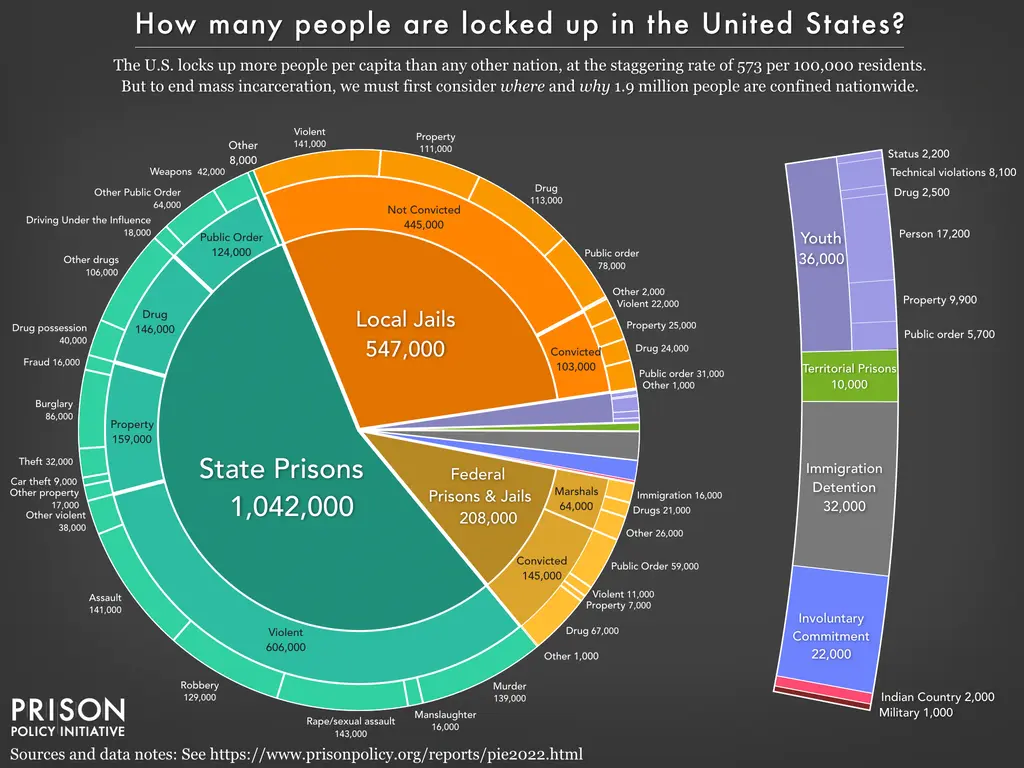Mass Incarceration: The Whole Pie 2022

Further complicating matters is the fact that the U.S. doesn’t have one “criminal justice system;” instead, we have thousands of federal, state, local, and tribal systems. Together, these systems hold almost 2 million people in 1,566 state prisons, 102 federal prisons, 2,850 local jails, 1,510 juvenile correctional facilities, 186 immigration detention facilities, and 82 Indian country jails, as well as in military prisons, civil commitment centers, state psychiatric hospitals, and prisons in the U.S. territories.
This report offers some much-needed clarity by piecing together the data about this country’s disparate systems of confinement. It provides a detailed look at where and why people are locked up in the U.S., and dispels some modern myths to focus attention on the real drivers of mass incarceration and overlooked issues that call for reform.
The prisons didn't put anybody in jail. These trash ass laws, corrupt cops, judges, underfunded public defender systems, are the problem.

Further complicating matters is the fact that the U.S. doesn’t have one “criminal justice system;” instead, we have thousands of federal, state, local, and tribal systems. Together, these systems hold almost 2 million people in 1,566 state prisons, 102 federal prisons, 2,850 local jails, 1,510 juvenile correctional facilities, 186 immigration detention facilities, and 82 Indian country jails, as well as in military prisons, civil commitment centers, state psychiatric hospitals, and prisons in the U.S. territories.
This report offers some much-needed clarity by piecing together the data about this country’s disparate systems of confinement. It provides a detailed look at where and why people are locked up in the U.S., and dispels some modern myths to focus attention on the real drivers of mass incarceration and overlooked issues that call for reform.
The prisons didn't put anybody in jail. These trash ass laws, corrupt cops, judges, underfunded public defender systems, are the problem.
